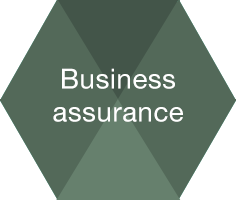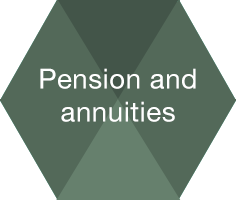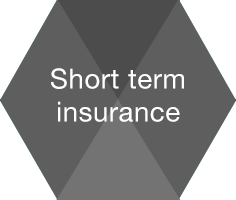Short term insurance (In)
Assurance (as in life assurance) suggests certainty – something that is irrefutable – that can not be challenged e.g. one day you will die. Insurance, on the other hand is not as definite. It proposes that something may happen and that you can insure against. This is the nature of short term insurance – insure that you are protected against an event that might happen.
In the above brief language lesson also lies the difference in the nature of the contracts between the two types of policies – the one, assurance is about an event – the end of your life, the end of a specified term (say age 65) or a specific health situation (e.g. a disability). The contract is therefore ongoing, with the specified event in mind. Underwriting is normally done upfront and risk factors are weighed to determine a premium that will assure you of a pay-out at the specified event.
Short term insurance, as the name implies, deals with more variable risks and because the possibility of fluctuation in the risk is so big, insurers therefore design the contract to cover risk from one month to another (renewable of course) but with the option to withdraw on short notice, because of risk fluctuations. You therefore insure but with a good measure of good faith thrown in; from the insurer’s side that you will apply proper risk management, and from your viewpoint – that he will refund you for losses beyond your control.
You did not plan for this to happen!
There are many types of short term insurance designed for specific needs: health, crop, indemnity, boiler, shipping, aircraft, car, boat, kidnap… the list is endless (and in fact if you can discover a new risk, I’m sure we will be able to place it somewhere!) For this purpose, let’s stick to the basics that form part of our everyday lives.
Fact of the matter is that short term insurance is part of our daily risk management process in which we as “captains of our own ships” decide which course to steer.
From a client perspective there are 3 things that are very important and that should be top priority with regard to this kind of product:
- Never under-insure! The simple principle is that claims will be paid in relation to the value of the insured amount. If you are 30% under-insured, your claim will pay 30% less.
- Whilst you can expect regular premium increases, the same increases will not necessary apply to the stuff insured. Make sure you take 10 minutes each to review the portfolio – add the new bicycles, review the replacement value of your motor vehicles and other more expensive items, and make sure everything is covered and the correct serial numbers (where required) are on the documentation.
- It also pays to shop around. If you feel uncomfortable with your current premiums and rates, request that we arrange for new quotations. If you are not a current client (it’s never too late) simply fax, or scan and mail us your current schedule for a fresh quotation. Get us on 012 345 6480.
PS. Whilst we are all for savings through d.i.y. methods like telephonic arrangements, we still maintain that there are more to insuring valuables than just listing them and taking the best quote.
To be sure you are properly insured, follow these 3 rules:
- Take a hour of your time and prepare a proper inventory of all your belongings – do it systematically (room by room) and write down all the serial numbers.
- Find yourself a suitably licensed and qualified broker. These people get paid to point out your risks, and they will point out all the dangers of repudiation of a claim, by discussing the so-called fine print.
- Review your portfolio annually!
We wish you an incident free insurance policy, but speedy pay-out when needed.





